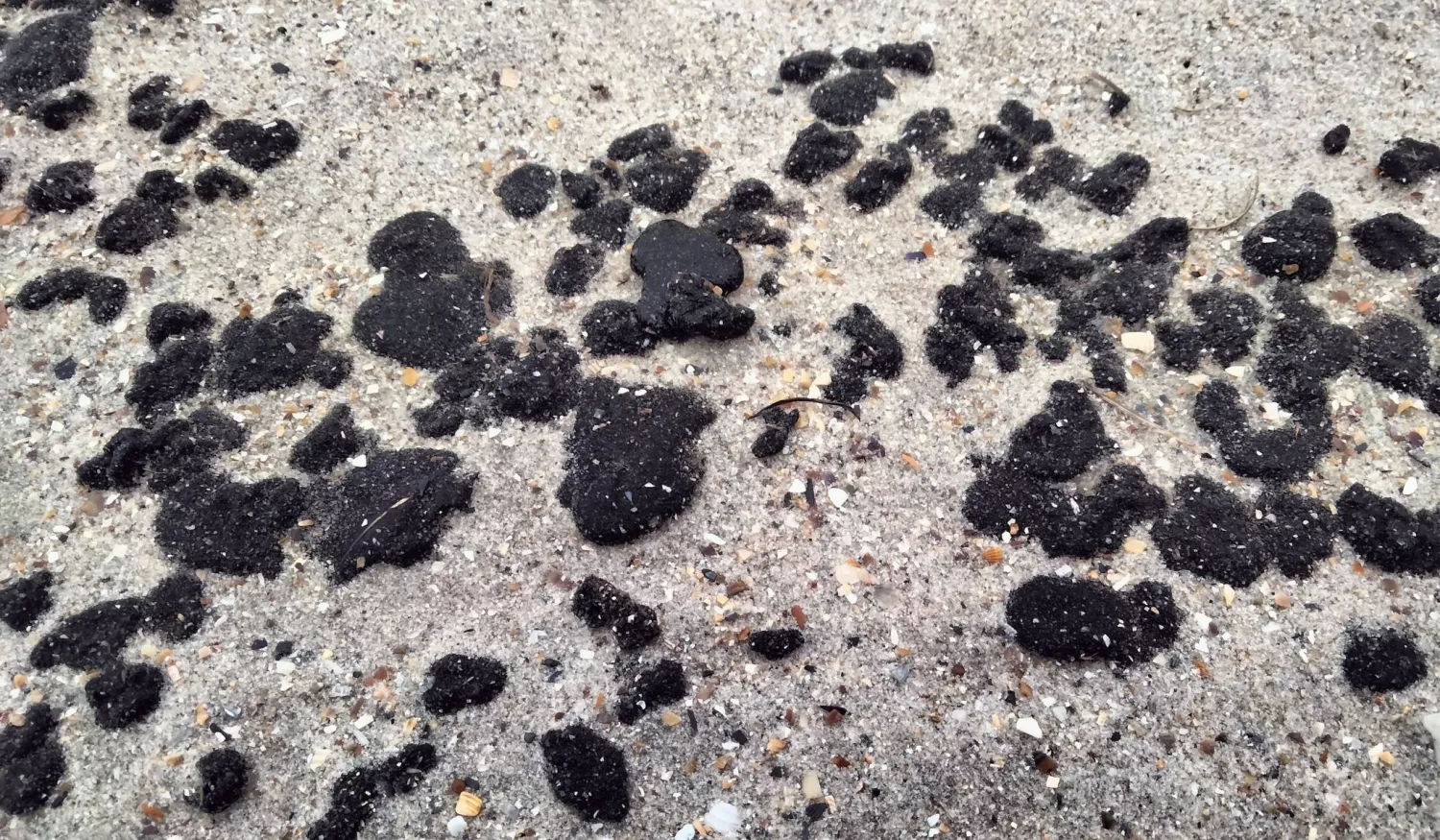Biologist about the consequences of fuel oil emissions on Odesa beaches: «Summer season at risk»
- Yuliia Boichenko
-
•
-
13:22, 03 February, 2025
On the coast of Odesa region, five sites have already been spotted with discharges of Russian fuel oil from oil products weighing up to half a tonne. Environmentalists believe that it can be particularly dangerous during summer warming.
This was stated by Ivan Rusiev, Doctor of Biological Sciences, Head of the Research Department of the «Tuzly Estuaries» Park, in an interview with «Ukrainian Radio» on 31 January, «NikVesti» reports.
The expert noted that there is not a lot of fuel oil at the moment, and that he and other employees of the nature park managed to collect some of the substance on the territory of «Tuzly Estuaries».
«There are currently 5 sites with fuel oil emissions. Fortunately, there is not much of it, up to half a tonne in total. However, millions of fractions are scattered across the beach area and recreational areas,» said Ivan Rusiev.
At the same time, he added that there is a problem with the collection of fuel oil, as there is still no clear algorithm on how to do it correctly, as well as how to transport and dispose of it.
If the situation does not change in the near future and the oil products are not disposed of, this will have consequences for the upcoming beach season, said Ivan Rusiev.
«Fuel oil leaking into the water and air can cause allergic reactions and affect the body's metabolism. The summer season may be at risk, as the level of pollution is only increasing.
If you do not collect the fractions that lie on the sandy mound, they can become covered with a small layer of sand. This sand drifts back and forth, and when it's hot, it will melt, and as a result, it will have a negative impact on the air and on living things,» he warns.
He added that it could take 10-20 years to restore the Black Sea and the coastline.
Russian tanker accident
As a reminder, on 15 December 2024, near Cape Panagia in the Kerch Strait , the «Volgoneft» tanker ran aground, and 4 tonnes of fuel oil could have leaked into the sea. Later, it became known that another tanker, the «Volgoneft-239» tanker, began to sink next. Its hull broke into two parts after being hit by a wave.
The leakage of fuel oil from two Russian tankers in the Black Sea caused a large-scale environmental disaster. The damage caused to the Black Sea ecosystem exceeds $14 billion.
Animal rights activists have recorded 32 deaths of cetaceans, including whales, dolphins and porpoises, following the accident with two Russian oil tankers «Volgoneft-212» and «Volgoneft-239». The deaths of the animals are most likely related to the fuel oil spill, which has already reached Feodosia, Alushta and Sudak.
As of 27 January, employees of the National Nature Park «Tuzly Estuaries» had collected up to four kilograms of fuel oil. At the same time, they started removing fuel oil near the Danube Biosphere Reserve on the coast of Odesa region.
Later, state ecologists reported that the Black Sea coast had been polluted by oil products again.
